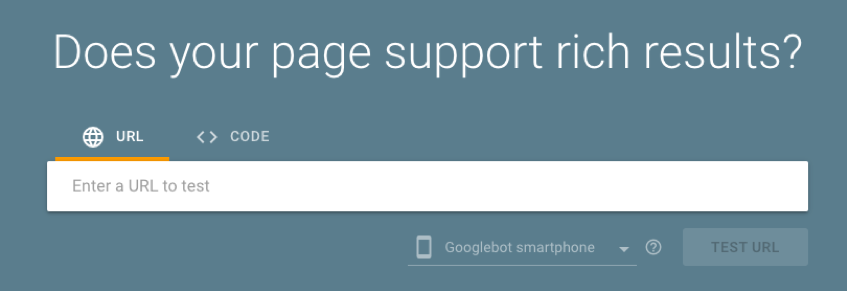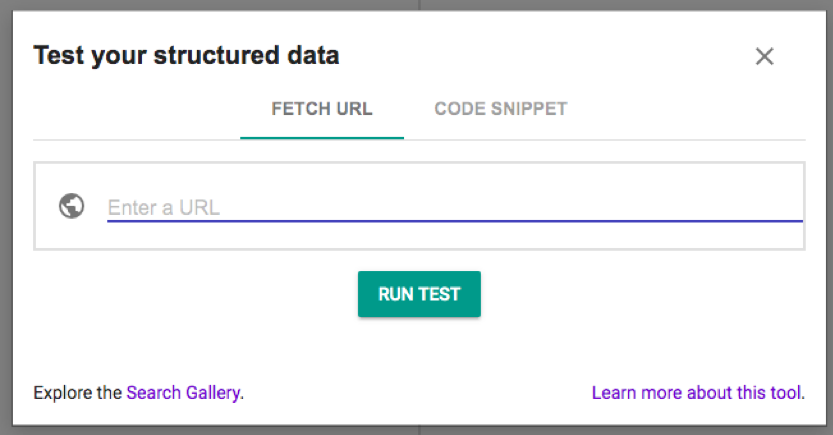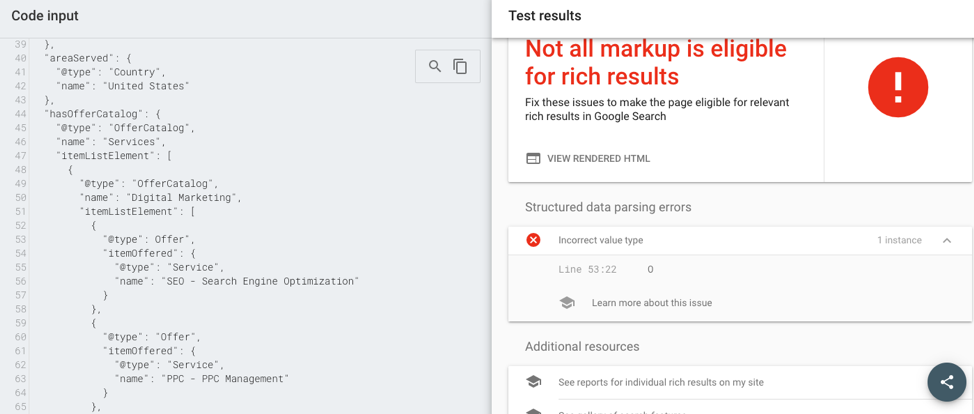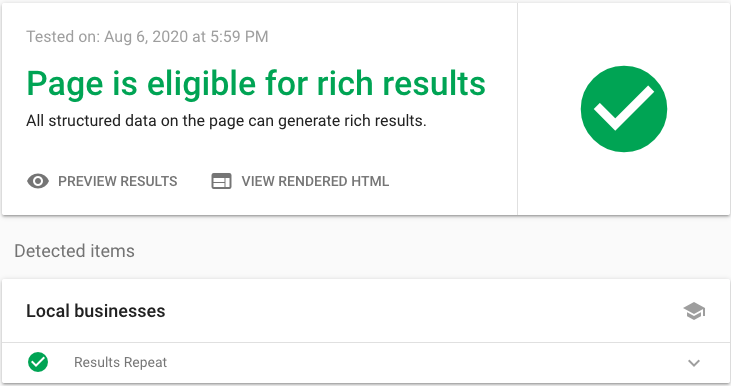Just about a year ago, in July of 2019, we posted a blog about using Google’s Structured Data Testing Tool. The very first sentence of that post at that time stated the following:
“Google is constantly providing new tools and data to help inform your marketing decisions.”
Well, it’s now August 2020 and even with all the things we’ve had to confront so far this year (as a society and as digital marketers), Google has continued to make changes to its platforms, search engine algorithms, and tools they provide for us. On July 7th, 2020, Google announced that they were upgrading the Rich Results Test Tool and taking it out of beta.
The updated Rich Results Test Tool will now fully support all Google’s rich result features! Exciting right? Like many of those working in SEO, yes, I’m excited for a new tool but I’m also sad to hear that the Structured Data Testing Tool is being deprecated. It was so good!
Differences between the Rich Results Test and the Structured Data Testing Tool
Much like the Structured Data Testing Tool, users can test and validate structured data, also known as schema markup. Here you can test specific code snippets or just enter the URL of a live webpage and all of the code will be reviewed. Both tools serve these basic testing functions, however, the Rich Results Test has changed things up a bit. There is an updated layout which includes new features, such as its alignment with Search Console’s Enhanced Reports and its improved ability to parse dynamically created structured markup code. There are some limitations in the tool’s functionality as well, we’ll discuss those in a bit though.
From the get-go things are pretty similar.
New

vs.
Old

Getting started is pretty simple for both, choose the method in which you want to test your structured data (code or URL) and submit. A quick and seemingly small difference here is the ability to test and render for mobile or desktop, a new feature for the Rich Results Test. Depending on how your website traffic enters your site (ie. more via mobile device or desktop) this option can be beneficial in testing for audience types.
The results provided are where the bigger changes between the two tools are.
Old

vs.
New

The new result layout is separated into multiple sections to improve usability.
The first, giving you direct notice if your code is eligible for rich results instead of just identifying the different schema types and warnings or errors. Here, you can use the “preview results” option to see how it would look in search results or view the rendered HTML code.
The second allows you to view the “Detected Items” and quickly identify the specific Schema Types from your code that are eligible for Rich Results in Google. It is important to note that this is exactly what you would be able to see in Google Search Console, creating consistency in output across the Google tools.
The biggest difference in the results is that now, instead of being able to test and validate all schema markup (of which there are over 800 from https://schema.org) from a live URL test, you only be notified of eligibility and data parsing errors for the supported schema types used in Google’s featured Rich Results. These featured results, previously called “rich snippets” or “rich cards” are enhanced search results that contain additional visual or interactive features which provide information specific to the user’s search query. Detailed information about each type can be found in Google’s gallery of search features.
Those types are as follows:
- Article
- Book
- Breadcrumb
- Carousel
- Course
- Critic Review
- Dataset
- Employer Aggregate Rating
- Estimated Salary
- Event
- FAQ
- Fact check
- How-to
- Image License Metadata (beta)
- Job posting
- Job training (beta)
- Local business
- Logo
- Movie
- Podcast
- Product
- Q&A
- Recipe
- Review snippet
- Sitelinks searchbox
- Software app (beta)
- Speakable
- Subscription and paywalled content
- Special Announcement
- Video
This list has been evolving over the past couple years, and in my opinion, will continue to do so as Google continues its quest to improve user experience. Check back often for changes and updates to existing Rich Results structured data or for new additions.
What does structured data do for a website?
Schema (structured data) is used by search engines to gather semantic information about the contents of your website. By including additional schema types on your site, you are teaching the search engines about what the content on your site means. It helps them to better crawl, organize, and display your content as you are telling them exactly what the content on the page is, instead of leaving it up to them to determine what the raw data is.
The specific types of schema discussed above are ones that Google recognizes and uses to provide enhanced search results to users. This does not mean that websites cannot or should not utilize other schema types not included in the search gallery. In fact, just the opposite. You should be using other schema because Google will no doubt update their list of eligible markup which could benefit your site immediately once it is recognized.
Because search engines are using machine learning (or AI) and they are still learning about natural language and what the queries we make as users actually mean, it is evident we still need to help them along in the process. The semantic information derived from structured data is an important element in teaching the search engines how your content is relevant to a user query, even if those schema types are not eligible for rich results.
Testing Schema with the Rich Results Test Tool
Back to the Rich Results Test tool and how to use it. The purpose of this tool is to test the Rich Result supported schema types used on your site to ensure proper implementation and that your page is eligible to show in rich results.
Whether testing a code snippet or a live URL you will be notified if the structured markup on your content is eligible and if there are any warnings or errors due to missing information fields of the schema type. It will also notify you of any data parsing errors, meaning an error in your code formatting, here the tool will identify what line of code is affected so you can quickly go in and identify what needs to be fixed.

Technical note: There have been complaints that this tool does not allow inline editing for validation of schema markup and that it will not read all schema code on a live URL. This is not quite correct. You can still test and validate schema types that are not eligible for rich results, you just have to do so using the “code” option at the start. Any data parsing errors that may appear in the code and cause an error will be identified and you can edit the code inline within the tool to retest and validate updates.
With a user interface that is more modern and easier to work with, testing your site’s eligibility to be shown in Rich Results has become a little easier with the Rich Results Testing tool.
It is possible for Google to include your site in its rich results without structured data and using it does not guarantee that you will be shown in them, but it does give you a better chance as you provide more information about the meaning of your website’s contents to the search engine.
If you need the help of a professional to identify and fix structured data errors or evaluate your site for opportunities to optimize for rich results, contact Results Repeat for a Free Marketing evaluation today.
Want some more SEO tools to check out? Take a look at our recommended Top 10 Free SEO Tools





